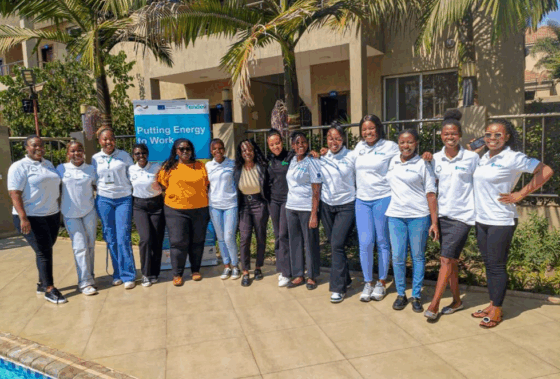Milestone Achieved: Five Years of Promoting Climate-Friendly Cooking in Kenya and Senegal
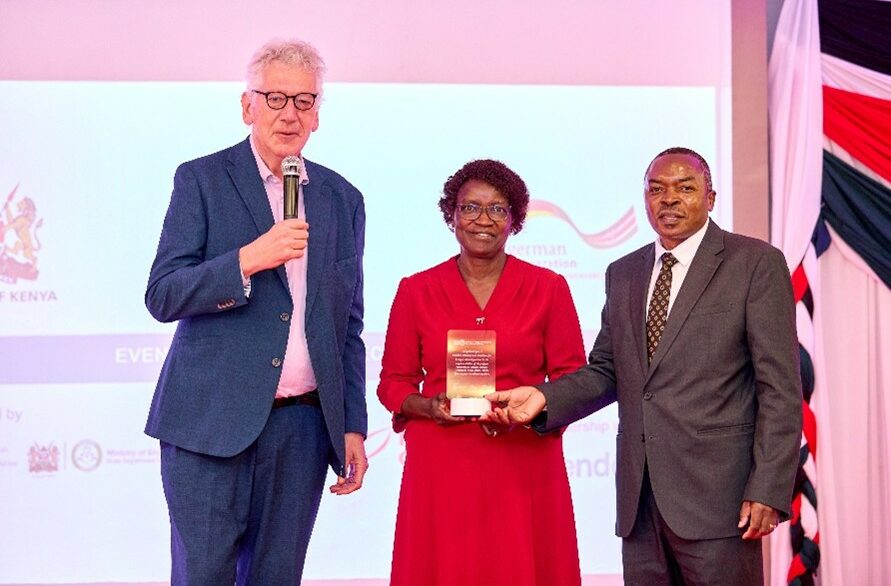
After five years of dedicated implementation, the “Promotion of Climate-Friendly Cooking Project” in Kenya and Senegal came to a successful close in September 2025. Jointly financed by the Green Climate Fund (GCF) and the German Federal Ministry for Economic Cooperation and Development (BMZ) and implemented by the Deutsche Gesellschaft für Internationale Zusammenarbeit (GIZ), the project leaves behind a lasting legacy of innovation, collaboration, and market transformation.
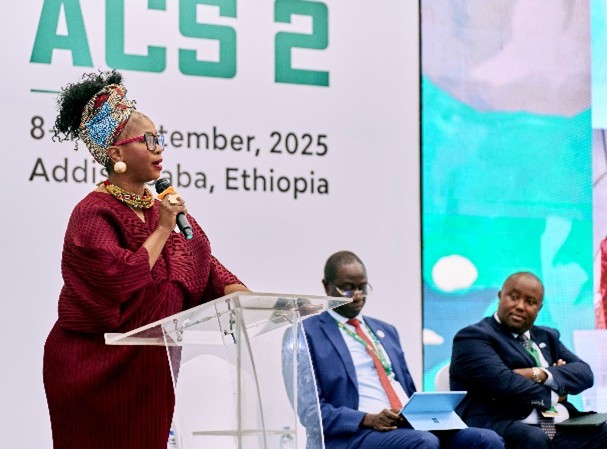
The conclusion of this landmark initiative was celebrated through a series of high-level events – beginning with the international closing event during the second African Climate Summit (ACS2) in Addis Ababa, and followed by national ceremonies in Nairobi and Dakar. These gatherings brought together government leaders, development partners, private sector innovators, and community representatives to honor achievements and envision the next chapter for climate-friendly cooking: Africa-wide replication.
Read more about the ACS2 event here: Climate-Friendly Cooking: An African-led Solution for Climate Action and Energy Access – EnDev
Kenya: Embedding Clean Cooking in Policy and Markets
In Kenya, the national closing ceremony, organised by GIZ Kenya in collaboration with the Ministry of Energy and Petroleum (MoEP) – convened national clean cooking entrepreneurs, development partners, and civil society to celebrate remarkable progress in advancing the clean cooking agenda, expanding markets and embedding it in national policy.
Speakers highlighted how the project’s integrated approach – combining innovation, private sector engagement, and capacity building – has accelerated access to climate-friendly cooking.
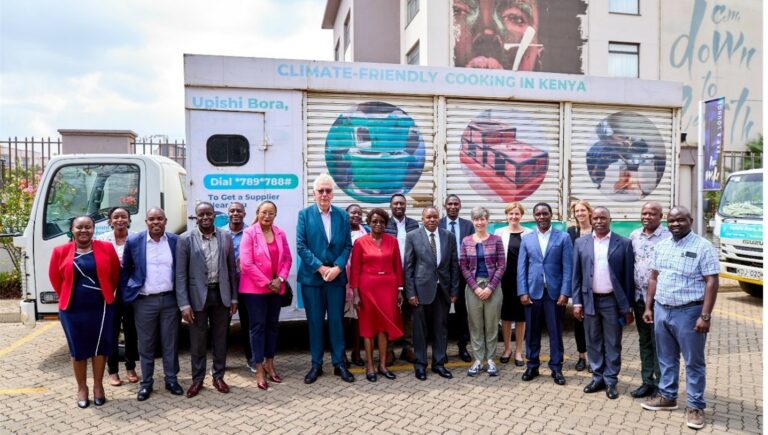
In his remarks, Eng. Isaac Kiva, Secretary of the State Department for Energy at the Ministry of Energy and Petroleum, emphasized that clean cooking remains a key national priority and a critical pathway to achieving Kenya’s sustainable development and climate goals. He highlighted the strong government commitment and partner collaboration driving the clean cooking agenda, noting that such efforts must be sustained and scaled up in the coming years.
“Clean cooking has gained remarkable traction in Kenya, enjoying support at the highest levels of leadership,” said Eng. Kiva. “Through strong partnerships between government, development partners, the private sector, and communities, we can continue advancing towards a cleaner, healthier, and more sustainable future for all.”
Entrepreneurs from across the country shared inspiring success stories, showing how climate finance and local enterprise development are transforming lives and building inclusive and sustainable energy markets.
“Through strong partnerships between government, development partners, the private sector, and communities, we can continue advancing towards a cleaner, healthier, and more sustainable future for all.”
— Eng. Isaac Kiva, Secretary of the State Department for Energy at the Ministry of Energy and Petroleum, Kenya
Senegal: Rewarding Market Transformation
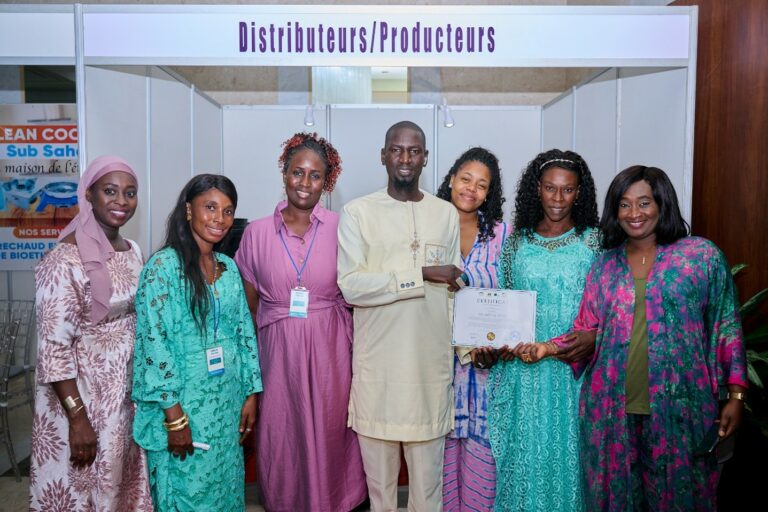
In Senegal, the national closing took place during the first edition of the Domestic Household Energy Week (Semaine des Combustibles Domestiques) in Dakar, organised by the Ministry of Energy, Petroleum and Mines (MEPM) in partnership with the Ministry of Environment and Ecological Transition (METE) and GIZ.
Panel discussions and exhibitions showcased innovations and lessons learned, underscoring the essential role of women’s leadership, youth participation, and local enterprise development in scaling up the sector.
The week-long event gathered national institutions, local authorities, private sector actors, women’s groups, and development partners – marking a pivotal moment in Senegal’s clean cooking journey. It also coincided with the launch of the National Strategy for Clean Cooking and Biofuels, developed with support from the climate-friendly cooking project.
In his remarks during the closing event in Senegal, Mr. Birame Soulèye Diop, Minister of Energy, Petroleum and Mines, highlighted the government’s priorities in achieving universal access to energy. He emphasized the need to focus efforts on modern, clean, and accessible solutions, while commending the commitment of development partners, including Germany. “We reaffirm our commitment to ensuring universal access to modern and clean energy,” said Mr. Birame Soulèye Diop, Minister of Energy, Petroleum and Mines.
"This project demonstrates the importance of strong partnerships in turning our national strategy into concrete action for the benefit of all Senegalese.”
— Mr. Birame Soulèye Diop, Minister of Energy, Petroleum and Mines, Senegal
A Shared Story of Change
To commemorate five years of impact, a beneficiary video was produced, capturing stories from both Kenya and Senegal. It follows producers, distributers and community members whose lives have been transformed by engaging in access to climate-friendly cooking.
The video was premiered during the international closing at ACS2, and was screened as a collective celebration of the project’s human impact and regional legacy.
Looking Ahead
While the implementation phase has concluded, the project’s achievements continue to inspire new action. Both Kenya and Senegal now have stronger markets, policies, and partnerships to sustain climate-friendly cooking progress, while regional collaboration through new initiatives ensure continued learning and momentum.
As highlighted during the Dakar closing, “The results achieved by the project do not mark an end, but a new beginning – a foundation for even more ambitious action toward a cleaner and more inclusive energy future.” Mr. Birame Soulèye Diop, Minister of Energy, Petroleum and Mines.
For more information:
Access the project’s lessons learned report: Climate-friendly cooking: scaling markets
or conact Verena Brinkmann: verena.brinkmann@giz.de
